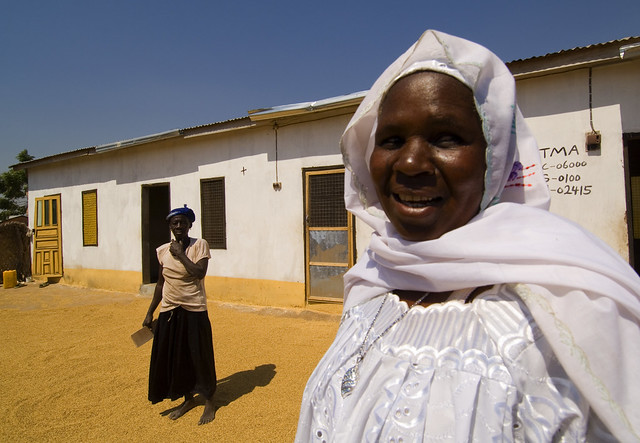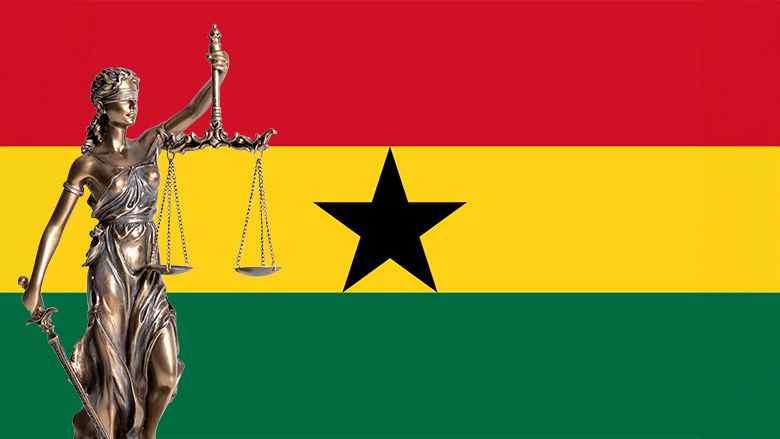Ghana sits on the Atlantic Ocean and borders Togo, C?te d'Ivoire, and Burkina Faso. Its population is about 34.4 million (2024). In the past two decades, it has taken major strides towards democracy?under a multi-party system, with its independent judiciary winning public trust.
President John Dramani Mahama was elected in the December 2024 elections. Mr. MahamaˇŻs administration faces a challenging environment in leading Ghana on a path of debt sustainability by enhancing fiscal discipline, expanding tax revenue, and completing the debt restructuring with external creditors under the IMF program.
Recent economic developments
The country faced a surge in public debt exacerbated by fiscal measures taken in response to external shocks, which resulted in losing access to international financial markets. To tackle these challenges, Ghana implemented substantial macroeconomic policy adjustments, including comprehensive debt restructuring and fiscal consolidation. Maintaining the recovery will require ongoing advancements in tax policy, revenue administration, public financial management reforms, and structural reforms in the energy and cocoa sectors. The government's program is supported by an IMF Extended Credit Facility, and by the World BankˇŻs Development Policy Operations.
Weak economic growth, limited government spending, and high inflationˇŞparticularly in food pricesˇŞhave worsened living standards, pushing more people into poverty, and increasing the risk of food insecurity. Maintaining economic growth around its potential rate of 5% will require macroeconomic stability. In the longer term, structural reforms aimed at promoting private sector development and increasing the attractiveness of foreign direct investment (FDI) are necessary to raise the countryˇŻs growth potential. Critical reforms include strengthening the insolvency regime, access to finance, the energy sector, and the legal and regulatory environment faced by foreign direct investors. Accelerating digitalization and harnessing the opportunities offered by the Africa Continental Free Trade Agreement (AfCFTA) through integration with global value chains will also be important in this regard.
In 2024, Ghana's GDP growth exceeded expectations, reaching 5.7%, a significant improvement from the 3.1% recorded in 2023. This expansion was driven by the industry sector, which grew by 7.1% year-on-year, thanks to strong growth in the extractives sector (mainly mining) and construction. Agriculture grew by 2.8%, owing to improvements in livestock and crop production. The services sector grew by 6.1%, compared to 5.6% in 2023, supported by growth in information and communications, financial and insurance, and transport services. On the expenditure side, growth was bolstered by consumption expansion, particularly public, and a rebound in investment spending.
Inflation reached 23.8% by year-end, driven by food prices and currency depreciation. The Cedi depreciated by 19.0% against the US dollar by end-2024 versus the previous year.
The external sector improved in 2024, achieving a current account surplus of 3.2% of GDP by end-year, bolstered by higher gold and crude oil exports and strong remittance inflows. Gross international reserves increased to $8.98 billion in 2024 (4 months of imports) from $5.92 billion in 2023.
The fiscal outturn for 2024 deteriorated, with primary and overall fiscal deficits exceeding targets at 3.7% and 7.7% of GDP, respectively, due to accumulating arrears and unbudgeted spending. Revenues and grants totaled 15.6% of GDP, while expenditures (commitment basis) rose to 23.3% of GDP. Nevertheless, the public debt-to-GDP ratio declined to 70.5% due to the haircut on Eurobonds and strong GDP growth.
The banking sector remained stable in 2024, with assets growing by 33.8% and stable capital adequacy ratios, although the non-performing loan ratio rose to 21.8% by end-year. Continued profit growth, recapitalization, and stringent credit standards are essential for full recovery.
Outlook
Growth projections for 2025 see output growth moderating to 4.3% due to a larger fiscal adjustment, reduced momentum in the extractives sector, stubborn inflation, and elevated interest rates. Medium-term growth is anticipated to return to its 5% potential as fiscal stabilization solidifies, non-extractive sector performance improves, and favorable conditions emerge for small-scale gold mining and the start of production at the PECAN fields. Inflation is expected to subside with renewed fiscal consolidation, slowly returning to its target only by 2027.
The fiscal deficit for 2025 is projected at 3.1% of GDP, with a primary surplus target of 1.5%, contingent on the government's ability to reverse the 2024 fiscal slippages, and improvements in tax collection. Over the medium term, the government aims to broaden the tax base, improve tax compliance, and enhance expenditure controls.
Poverty is projected to rise, reaching 51.2% (LMIC poverty line) by 2027. Similarly, extreme poverty will reach 26.9% by 2027. These projections are consistent with a moderate outlook on growth and persistent inflation from 2025 onwards. While economic stabilization is a pre-condition for continued poverty reduction, compensating mechanisms and the strengthening of social programs, such as LEAP, will ensure the poorest are protected from any adverse consequences of fiscal measures.
Risks to the outlook include uncertainty around the government's ability to execute the large fiscal adjustment necessary to stay on track with the IMF program for long-term economic sustainability, high financing needs with the resumption of the debt service after the moratorium, energy sector losses and contingent liabilities from SOEs and the financial sector. A less benign global landscape with slower-than-expected loosening of advanced economies' monetary policies, global trade wars and slower growth affecting key trading partners and commodity prices also pose substantial risks.
Last Updated: Apr 14, 2025









